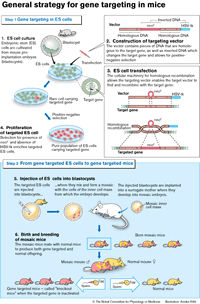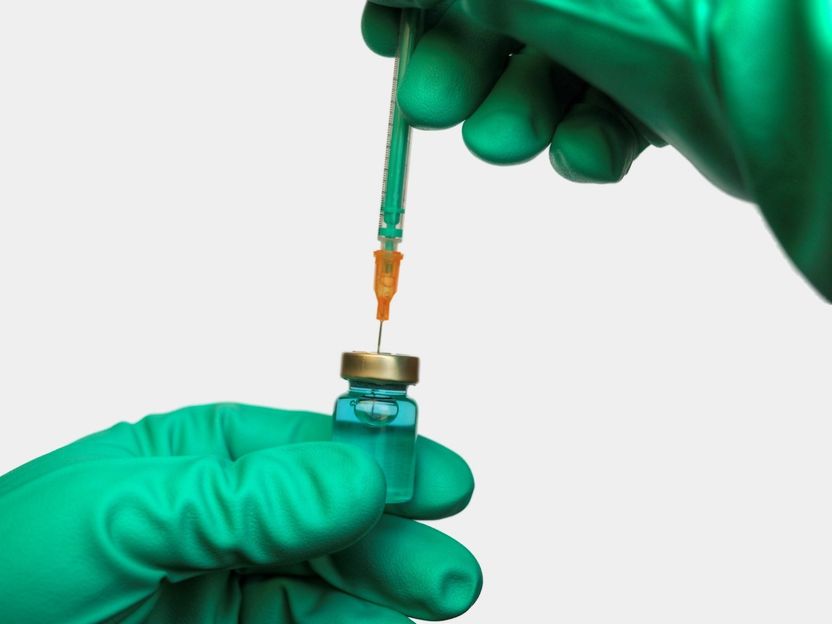New biomarker found for group of rare metabolic diseases
A newly discovered biomarker associated with a rare metabolic disorder may facilitate better diagnosis and identification of new drugs for clinical trials for the disease, according to researchers in the Perelman School of medicine at the University of Pennsylvania. Development of treatments for the neurological symptoms of mucopolysaccharidoses (MPS), a family of rare genetic disorders, have been hindered by the lack of objective measures of the extent of central nervous system (CNS) damage in patients.
"This new biomarker for CNS symptoms in MPS patients may help families better understand their child's diagnosis and prognosis and should help clinicians and regulatory agencies to evaluate the efficacy of new therapies," said senior author James Wilson, MD, PhD, a professor of Medicine and director of the Orphan Disease Center (ODC) at Penn.
MPS I is the most common form of this group of diseases and is caused by a deficiency of the key enzyme IDUA needed to break down complex sugars in cells. The disorder eventually leads to the abnormal accumulation of sugar fragments and cell death. The two main treatments are bone marrow transplantation and intravenous enzyme replacement therapy; however, neither of these treatments cure the disorder, especially when the disease enters the central nervous system.
Many of the individual MPS disorders share symptoms, such as vision and hearing problems, hernias, and heart problems. Patient groups estimate that in the United States 1 in 25,000 births results in some form of MPS. Life expectancy varies significantly for people with MPS, but individuals with the most severe form rarely live more than 10 years.
The ODC team screened metabolites from cerebrospinal fluid (CSF) in a canine model of MPS I. This assay revealed a marked elevation of a compound called spermine in affected animals. Gene therapy to reduce CSF spermine corrected brain lesions in these dogs.
Additional studies in cultured neurons from MPS I mice showed that elevated spermine was responsible for the abnormal overgrowth observed in the mouse cells.
In humans, spermine is elevated in the CSF of four MPS subtypes in which cognitive declines are seen, but not in two subtypes in which cognitive function is preserved. In MPS I patients, elevated CSF spermine was restricted to patients with genotypes associated with CNS disease. CSF spermine in these patients was reduced following hematopoietic stem cell transplantation -- the only therapy currently capable of improving cognitive outcomes.
"Our findings offer new insights into CNS symptoms in MPS patients," said first author Christian Hinderer, MD, PhD, ODC Research Director. "These studies suggest CSF spermine could be used as a biomarker to evaluate the outcome of novel therapeutics designed to treat the CNS manifestations of MPS diseases, which will greatly simplify clinical trials."
"The mission of the ODC is to enable the development of novel diagnostics and treatments for rare diseases," Wilson said. "We are offering access to this biomarker to the orphan disease research community for all research purposes at no cost to enable labs to freely conduct assays for their own research and patients' needs. The only way we will move ahead in our field is to openly collaborate in the pre-competitive space, during the early stages of development of biomarkers and treatments."
Original publication
Other news from the department science
Most read news
More news from our other portals
See the theme worlds for related content
Topic world Gene therapy
Genetic diseases once considered untreatable are now at the center of innovative therapeutic approaches. Research and development of gene therapies in biotech and pharma aim to directly correct or replace defective or missing genes to combat disease at the molecular level. This revolutionary approach promises not only to treat symptoms, but to eliminate the cause of the disease itself.

Topic world Gene therapy
Genetic diseases once considered untreatable are now at the center of innovative therapeutic approaches. Research and development of gene therapies in biotech and pharma aim to directly correct or replace defective or missing genes to combat disease at the molecular level. This revolutionary approach promises not only to treat symptoms, but to eliminate the cause of the disease itself.




















































